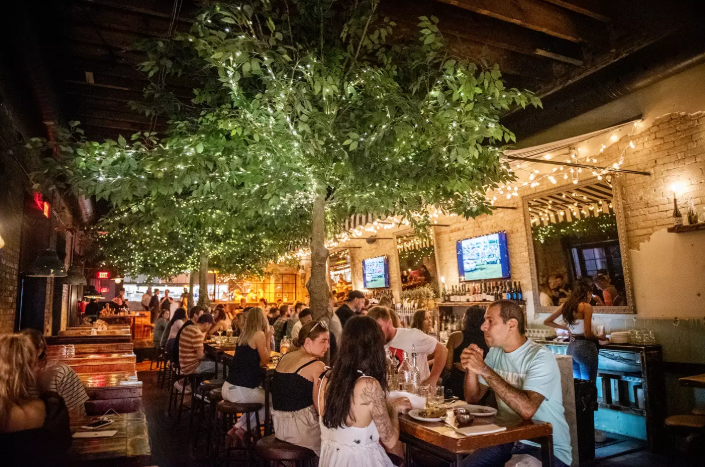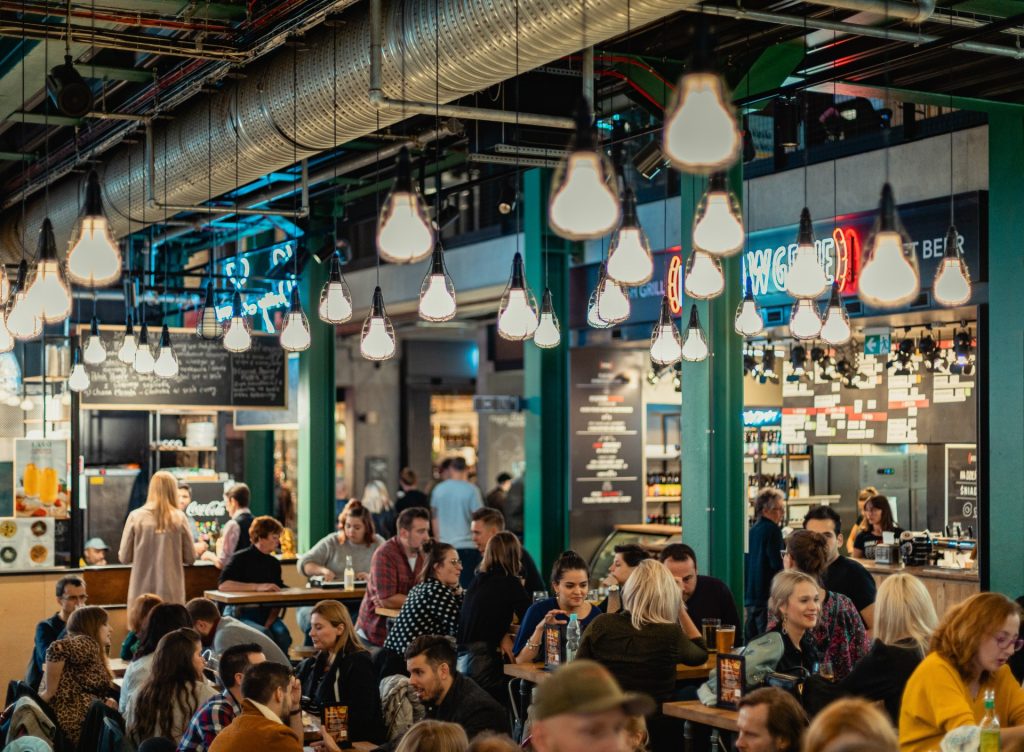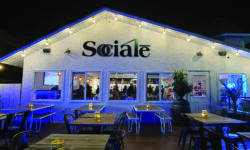Opening a Restaurant: 5 Keys to Success
Success doesn’t happen overnight in the restaurant industry. It takes a lot of planning, connecting with the right industry professionals, and hard work. When thinking about opening up your own restaurant, you want to ensure that you’re setting yourself up with the best possible people, practices, and resources available to you.
There are a number of things to begin to think about when opening a restaurant – real estate being one of them. Real estate shouldn’t be overlooked or underestimated in importance. Your physical space attributes and informs your brand’s identity and it can help boost your bottom line. Additionally, considering financing, starting up a smart marketing strategy, and deciding on an impactful and healthy work environment should all be part of your process in opening up a restaurant.
CHI Real Estate Group; a boutique real estate team that specializes in the hottest aspect of the commercial real estate game – restaurants. As experts at pairing up buyers with properties that fit their needs, they’ve provided their five key pieces of advice to help set up any restaurateur for success.
Defining Your Restaurant’s Identity
The physical space of a restaurant not only encapsulates but adds meaning to the brand identity. Bar Poet at 1090 Queen Street West in Toronto is a great example. From the moment you walk into this restaurant, you feel transported to the centre of an enchanting piazza on the streets of Rome.
The high ceiling is tastefully designed with sky-high greenery and tiny lights. The exposed brick and cathedral windows add to the renaissance design style with one high window even being used as a DJ booth. It would be hard to imagine a space more fitting for the realization of this successful concept.

A lot of decisions become clear once you have defined your identity. Identity is important because it lays the foundation for the essence of a restaurant. It’s the cornerstone for establishing the overall energy and personality that a foodservice operation has to offer.
Consistency is key. Customers want to know what to expect from your restaurant. A consistent identity and concept builds trust with your patrons, helping them to feel more comfortable with your establishment and increasing the likelihood that they will return and recommend you to others. Similarly, inconsistent concepts and menus can negatively impact their experience. Consistent identity and concept – from overall branding to designing the menu – are also necessary for your business plan and financing.
The easiest ways to define your restaurant is to ask the important questions:
● What does your target customer look like?
● Does your restaurant have a theme? What will be the ambiance?
● Will your theme be practical given the location of your restaurant?
● What kind of services do you want to offer?
● What types of music will be played and at what volume?
Identifying your brand is also a tool to help you find your point of differentiation. Market differentiation is what allows you to set yourself apart and be clear on what makes your restaurant special or different. You need to have a solid concept from the very start—because this concept is the foundation for your business.
If you are struggling with coming up with an identity or concept, there are other options to explore. For example, you may consider getting involved with a franchise or partnership agreement. There are also business consultants who can help you create a solid strategy and they can assist throughout the whole process. Knowing who to turn to when will help you succeed in this industry.
Don’t overlook the importance of financing
Almost every restaurant requires some kind of financing. It’s important to leave yourself a good budget for lawyers and legal fees during the purchasing process. When it comes to fixing a place up, leasehold improvements can add up quickly. You must plan for these expenses.
Operating expenses also need to be considered. Industry best practices suggest carrying enough cash to pay for operating expenses for a minimum of six months. This will protect you from seasonal downturns, emergencies, and other unpredictable events.
As a small business owner, there will be no shortage of vendors approaching you with different products and services. While some of them are valuable, you need to do your research before committing to any of them.
The success of your restaurant will rely on maintaining positive cash flows. Always look for ways to save money, but never at the cost of diminishing the quality of your food or the guest experience.
Choose a strong location

We’ve all heard the common phrase, “Location, location, location!” Restaurants are no different in this regard. Your location can make or break your restaurant.
To start, it’s important to understand the basics of lease clauses. Aside from the rental rates, commercial leases are binding contracts so it’s important to retain a specialist to review your legal documents before signing.
Keep in mind that leases are prepared by the landlord’s lawyers in the interest of the landlord. When negotiating a lease, it is common for there to be back and forth between lawyers before something is found to be acceptable and agreed to by both parties. Be sure to retain a lawyer who is experienced with commercial leases.
When you factor in the cost of building something from scratch, an existing restaurant holds a lot of value. Any fixtured restaurant that you can find for under $40,000 is pretty much free. We always advise our clients to exercise caution in making big decisions early on in the interest of saving money. Investing in a strong location where your concept is most likely to be frequented and successful based on things like the demographics and popularity of neighbouring businesses can be the best money you spend.
Remember, all places need love. Any location you find will require some degree of work. However, these changes are important in creating a unique offering and will impact the overall guest experience.
Develop a strong marketing plan
You can create the best restaurant concept ever, but it will fail if people don’t know it exists. Marketing and PR are areas that many restaurants struggle with. You have to promote your restaurant if you want to increase its visibility and avoid making the mistake of believing that customers will show up on their own.
Here are a few ideas to consider:
● Leverage the power of your social network
● Host a sneak peek of selected menu items to create a buzz
● Create a ‘friends and family’ or soft opening night for the neighbourhood and invite guests to post on social media or provide feedback on Google, Yelp, and other review platforms
Social media is a powerful tool, and an important question to ask early on is, “Are you going to handle the online/social media or should you hire someone?”. If you try to be a jack-of-all-trades, you risk being a master of none. Know your strengths, and don’t be shy about asking people for help.
When you think about where and how to market your business, it’s important to reflect on your client base.
Ask questions like:
● Where are they?
● What online resources do they use and trust?
● What content will resonate with them?
● What do they look for in a restaurant?
If you can answer these questions, you’ll know exactly where to reach your customers and what type of content to create to stay connected with them.
Ideas are great— but the execution is everything
Everyone wants to protect their next big idea, but we believe that execution is the most important factor in your success. You must have the ability to activate your plan.
Learn to engage the right people that have the expertise you need—smart people hire smarter people! Good employees are worth their weight in gold. They are ambassadors for your business. They also engage with your customers and represent the idea you worked so hard to create.
It’s important to put a lot of thought and consideration into the internal culture you want to create and the leadership qualities that align with your vision. Turnover in the restaurant industry is high. It takes a lot of time, energy, and money to replace well-performing employees who leave. Be proactive and intentional about the environment you create for your staff to prevent turnover, and invest in people, they are your best asset.
Organizations like Not 9 to 5 are bringing a lot of awareness and resources to restaurant owners. They are supporting them by encouraging change that promotes healthier mental wellbeing for both employers and employees.
Poor execution of the business plan and poor
operations management are the most common reasons restaurants fail. We suggest
that you try to take a vacation before you open your doors as you will need to
be well-rested, and don’t forget to enjoy yourself.

Ori Grad Broker & Managing Director, CHI Real Estate Group
If you’re looking for more insights and information, be sure to find yourself at the upcoming RC Show 2020 in Toronto where you can hear Ori Grad, Managing Director and Broker of CHI Real Estate Group speak at ‘Cost & Clauses’ in the Learning Lounge.







